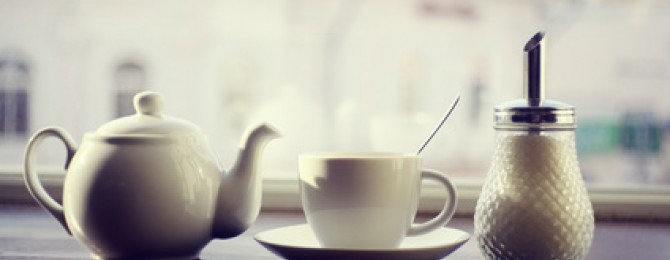What's the best way to drink tea?
Published 04/11/2015
To avoid an outcry from all the tea-lovers at the Home of Translation after our article title Coffee: why translators love it, we thought we had better write an article about tea too.
Packed full of healthy nutrients, tea is an extremely versatile, and somewhat controversial berverage... in the kitchen in our agency alone there is a whole host of varieties and flavours.
How do you take your tea?
No two countries prepare tea in the same way! For example, in Nepal they put the tea, milk and sugar directly into cold water and heat the whole lot all up together; in Tibet you are likely to come across salted tea made with butter instead of milk and salt rather than sugar; in Britain we like drinking black tea with splash of milk while in France green, black or white teas flavoured with plants, flowers or berries are becoming increasingly popular.
So what is the best way to do it? First, let’s look at some of the health benefits…
Paradoxically, tea is both stimulating and relaxing thanks to its theanine content, which has a sort of ‘calm stimulating’ effect on the brain and makes it a good drink for long periods of concentration (perfect for extended stints in the translation office or an interpreting booth!). But watch out! The theanine content varies depending on the type of tea: black tea contains about 20mg per cup, whereas green tea can contain as little as 5mg; however, Matcha and Gyokuro green teas may have as much as 46mg!!
In addition, scientific studies have shown that the catechine in green tea could help reduce stress and improve cognitive performance, as well as contribute to preventing cognitive illnesses such as Alzheimer’s disease.
However, the beneficial effects of tea might be inhibited by adding milk… not good news for British tea lovers!
Experts therefore recommend drinking green tea or black tea without milk from time to time, so perhaps the more ‘delicate’ teas like Earl Grey (which is black tea flavoured with bergamot and which is often drunk black or with a drop of lemon juice) might be a whole lot healthier for us than a good old ‘traditional brew’!
Is it time to broaden our tea-drinking horizons?
http://authoritynutrition.com/stimulants-in-tea/ - accessed October 2015
http://www.theguardian.com/society/2011/jan/06/green-tea-alzheimers-cancer - accessed October 2015
http://www.theguardian.com/science/2007/jan/09/medicalresearch.medicineandhealth - accessed October 2015
http://psychcentral.com/news/2014/04/14/green-tea-for-brain-health/68492.html - accessed October 2015
https://nootropicsguide.wordpress.com/nootropics-information/l-theanine-caffeine-and-tea/ - accessed October 2015
Sort articles by region :
Looking for a specific topic? Try here :

